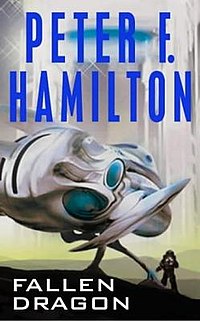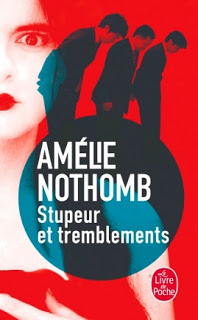
I have been reading this very nice blog (in Romanian) called
BookBlog, where people talk about and review books. They had
a nice initiative of getting people together to swap books. I've decided to go and see how it is.
The result? Man, I'm old! And if so much opinionated and energetic youth, as were the people that came to the meeting, did somehow manage to infest me with their vitality, someone inevitably bumped a chair into me then excused themselves using the polite form of addressing your elders.
The meeting took place at Carturesti, a nice book shop/tea shop in Bucharest, one that has a very nice atmosphere, but lousy service. You see, the whole thing was organised with the approval of the people at Carturesti, but when we got there, no one knew we were coming and were very apprehensive about us moving tables around. Then they've decided to bring a big mug of fruit infusion (improperly called tea) to all of us, as it was too much the trouble of making individual tea pots for each request. I was bent on drinking mate tea and I hate boiled fruits, so it did upset me a lot.
But back to the meeting. The layout (a big makeshift table) did not encourage group discussion, but rather a group of small discussions. I've talked a little with the nice girl next to me, until a lot of her friends came and make it awkward. They all seemed to know each other, more or less, making me feel like an outsider. And I was outside everything you can imagine: size, age group, book interests.
Yes, the books everyone brought were mainly taken from the second hand book shops, not that mine was different, but I could find no single book that caught my eye. Eventually I bought a Strugatski book and left them my beloved "
Fisherman's Hope". I do hope someone that knows how to appreciate it fished it home. Or I could have gotten A Mind of Its Own: A Cultural History of the Penis, by David M. Friedman, which was a huge success, although I doubt anyone took it home.
Eventually I got bored, talked a little to the organizer, a very nice guy from BookBlog. He has what it takes to make it in life... that particular energy that is found in both successful businessmen and sales people. Then I left.
At least I had the opportunity to read some more on the way back and at the Pizza Hut place, for now I return to my designated purpose for today, viewing as many movies as possible before the wife comes back. Muhahahahhaa!
 This book is written by a guy that made a small company dedicated to programming with free tools. Thus, it tries to show how to debug ASP.Net assuming that you come from an ASP background and that you don't have Visual Studio .Net. So I don't think I have to tell you how much useless information there is in there. It even covers programmatic code tracing.
This book is written by a guy that made a small company dedicated to programming with free tools. Thus, it tries to show how to debug ASP.Net assuming that you come from an ASP background and that you don't have Visual Studio .Net. So I don't think I have to tell you how much useless information there is in there. It even covers programmatic code tracing.






